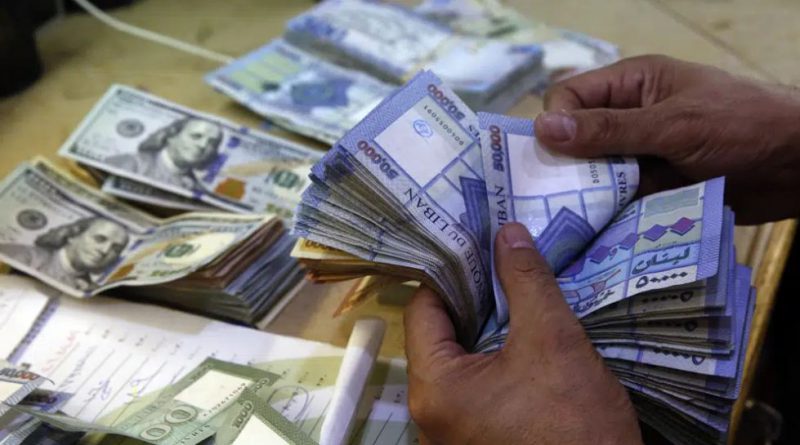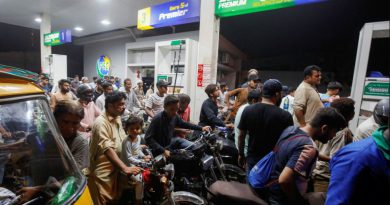Facing pushback from Lebanese officials, UN walks back plan to give aid to Syrian refugees in USD
Beirut (AP) — The United Nations announced Saturday that it will suspend a plan to begin making aid payments to Syrian refugees in crisis-wracked Lebanon in dollars, after pushback from Lebanese officials.
Lebanon has been in the throes of a severe financial crisis since 2019, with triple-digit inflation and the domestic currency having lost more than 98% of its market value. An estimated three-quarters of the population is now living in poverty, with refugees having been hit particularly hard. Some 90% of Syrian refugees in Lebanon are below the extreme poverty line, according to a U.N. assessment.
Since the collapse of Lebanon’s currency, U.N. agencies had been paying assistance to refugees in Lebanese pounds.
However, on Wednesday, citing “the rapid depreciation of the pound, increased fluctuations of the exchange rate, and the strain on the financial provider in supplying large volumes of cash in Lebanese pounds” the U.N. refugee agency and the World Food Program, along with the U.N. humanitarian coordinator in Lebanon said they would start giving refugees in Lebanon the option to receive payments in dollars, rather than in Lebanese pounds, with a maximum of $125 per family per month.
Before the announcement, refugee households received a maximum of 8 million pounds per month, worth about $80.
However, on Saturday, the U.N. agencies said that after meetings with Lebanon’s caretaker Prime Minister Najib Mikati and caretaker Social Affairs Minister Hector Hajjar, “and based on their requests, a decision has been made to temporarily pause the use of dual currency for next month’s disbursement of cash assistance to refugees.”
Spokespeople for the Humanitarian Coordinator Imran Riza and for UNHCR said that aid payments in Lebanese pounds will continue.
Lebanon’s caretaker Social Affairs Minister Hector Hajjar said at a press conference Friday that Lebanese officials reject paying Syrian refugees in dollars because this “would make them stay in Lebanon.” He added that most of the Syrian refugees in Lebanon are “economic refugees and not refugees who fled because of security and political reasons.”
Also on Friday, the World Bank announced it had approved $300 million in additional financing to provide cash assistance to poor Lebanese families, with some 160,000 households receiving up to $145 per month for 24 months.
Sentiments against Syrian refugees in Lebanon have been on the rise since the economic crisis began and since Syrian government forces took control of much of the neighboring country.
Officials in Lebanon now maintain that it is safe for many of the Syrian refugees to return home. In recent weeks, the Lebanese army launched a series of raids on refugee settlements, arresting and in many cases deporting those found not to have legal residency documents.



